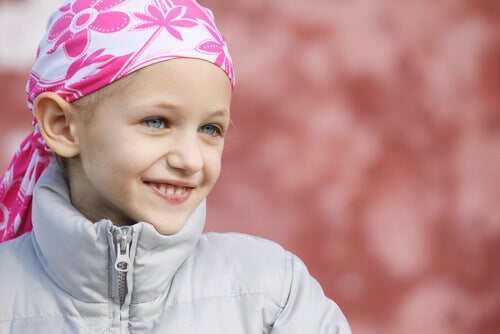New cases of children with cancer are diagnosed each year. Fortunately, advances in medicine allow for greater life expectancy, but in addition to curing the disease, much attention needs to be paid to other problems.
The side effects of cancer and its treatments need to be well detailed, so it is important to gather the most effective psychological techniques to reduce them, in addition it is important to know the most appropriate interventions to reduce anxiety and depression. problems that children may experience, not forgetting the improvement of their quality of life, both during the disease process and after overcoming.
- The child suffers from physical and psychological symptoms.
- Physical symptoms include vomiting.
- Weight loss.
- Fatigue.
- Etc.
- Emotionally.
- Children with cancer face feelings like anger.
- Fear.
- Loneliness.
- Or anxiety.
Depending on the age at which the diagnosis is made, the disease manifests itself in one way or another, in young children with cancer highlights the concern for pain and fear of being separated from their parents, in the larger feelings of loneliness begin to appear In adolescents, the fear of dying appears and the stress of physical changes.
It is true that there are also common points, pain is one of the most common concerns, it can come from the disease itself or it can occur as a result of medical procedures, for example, aspiration and bone marrow biopsy are very painful and frequent procedures. during the procedure.
Children with cancer should also be exposed to procedures such as radiotherapy, chemotherapy or blood draw, which are considered more painful than the disease itself, in addition to sleep disorders, fatigue, anxiety problems, depressive symptoms and problems in their social relationships they are also quite common.
Receiving the diagnosis has a very strong psychological impact on the family, after which the question arises whether we should inform the child or not, in these cases consulting an expert on what to do and how to do it can help both the child, the family and the boy.
Diagnosing cancer is a very delicate situation that requires a lot of understanding, delicacy and above all support.
The effects of the disease, the characteristics of treatment and its evolution, as well as the sense of uncertainty, often lead to many questions that require an answer, and psychological intervention can help find them or learn to deal with situations that arise.
Below are a number of treatments that have proven effective on several occasions. To help you understand, we’ve separated the main symptoms we talked about earlier with their main treatments.
The current survival rate of children with cancer is approaching 80%, a hopeful fact that aims to reach 100% thanks to advances in different types of treatment, but what does it really mean to be a cancer patient?
Cancer is a disease characterized, among other things, by long periods of hospitalization, children stop going to school, contact with classmates or teachers and with the outside world is minimal, this reduces their social circle and when it comes to joining, difficulties arise.
Returning to school, for example, is a complex process, children and their parents express their fears. On the one hand, children do not want to be separated from their parents and may have some concerns about changes in their body image (alopecia, amputations, etc. ). On the other hand, parents express fear that their children will be rejected by their peers and the spread of diseases that affect the child’s health again.
In these cases, it is recommended to provide useful information to the child and the whole family, but also to the teachers who will be responsible for the situation. Reinstatement is a time-taking process of adaptation.
Interventions such as meeting with school staff to provide information about illness and treatment, conduct preliminary activities to prepare the child for return to school, or organize presentations so that other students understand the child’s illness and needs. the child has proven effective.
In conclusion, through psychological help and not to mention multidisciplinary intervention with other professionals, we can ensure that children with cancer and their families achieve a better quality of life during this difficult process.

